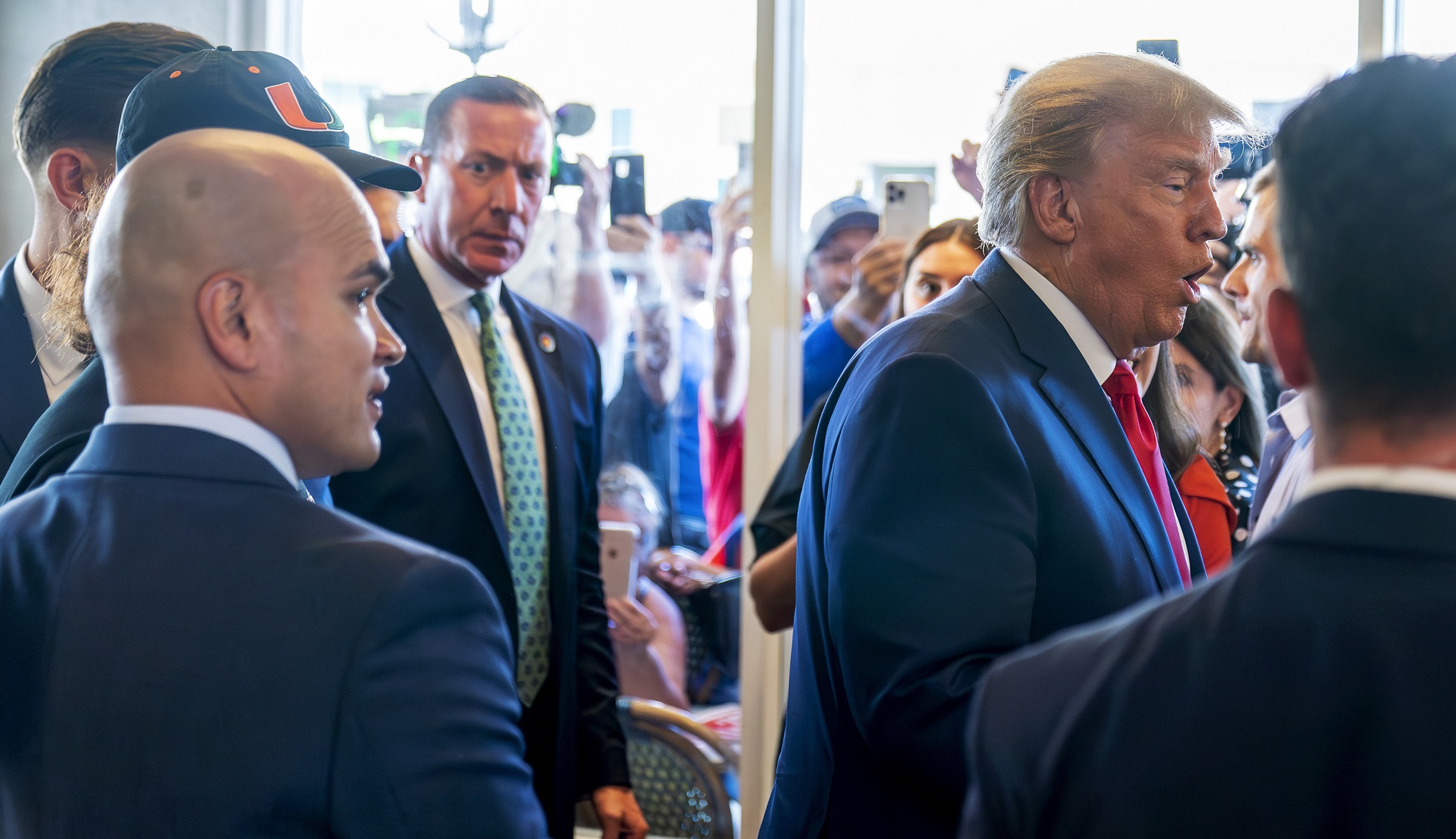Former President Donald Trump asked a federal court on Monday night to delay his classified documents trial until after the 2024 presidential election, arguing that to hold it beforehand would be unfair.
Attorneys for Trump and Walt Nauta, the former president’s aide and co-defendant, said there must be a “measured consideration and timeline” for the case that “allows for a careful and complete review of the procedures” that led to the indictment.
WALL OF WASTE: BIDEN ENDING TRUMP WALL LEAVES BORDER RANCHER WITH FIELD OF ‘RUSTING’ STEEL

The attorneys argue that the “extraordinary case presents a serious challenge to both the fact and perception of our American democracy” and there is no need to rush the trial before Nov. 5, 2024.
Less than 1 1/2 years away, the 2024 presidential election is expected to feature two familiar foes facing off once again as Trump and President Joe Biden are polling far ahead of their respective party rivals.
The former president’s attorneys wrote that “the Court now presides over a prosecution advanced by the administration of a sitting President against his chief political rival, himself a leading candidate for the Presidency of the United States,” adding the claim that Biden was involved in Trump’s indictment, something the president vehemently denies.
Trump and Nauta’s joint court filing in the U.S. District Court for the Southern District of Florida came after the Department of Justice asked the court to delay the start of the trial by nearly four months to mid-December, per CNBC.
But Trump and Nauta believe that idea is “unrealistic” and, in their 12-page court filing, request that deciding on a date for the criminal trial be put off for some time. They put forward a long list of reasons they believe that action is necessary.
A delay in the trial date announcement would give the co-defendants more time to prepare and seek all avenues for having the case dismissed. And to delay it until after the election would mean that Trump could be the president-elect, giving him more power to defend himself.
Last week, the judge presiding over Trump’s classified documents case gave his legal team a July 13 deadline on organizing sensitive evidence that will be the focal point of his trial.
CLICK HERE TO READ MORE FROM THE WASHINGTON EXAMINER
Before a trial can begin, the court needs to follow guidelines under what is known as the Classified Information Procedures Act to decide how sensitive materials involved in legal proceedings can be protected, as well as decide how they can be revealed or discussed in a trial setting.
Trump pleaded not guilty last month to 37 federal charges in connection to the classified documents case, including 31 counts of willful retention of classified documents under the Espionage Act.

